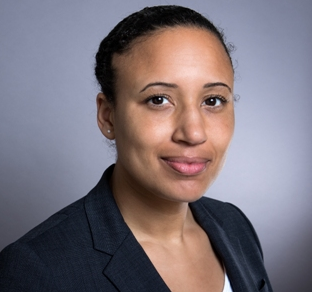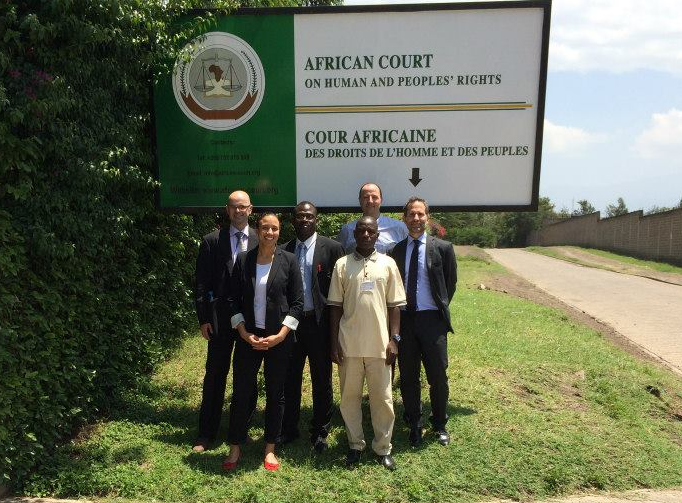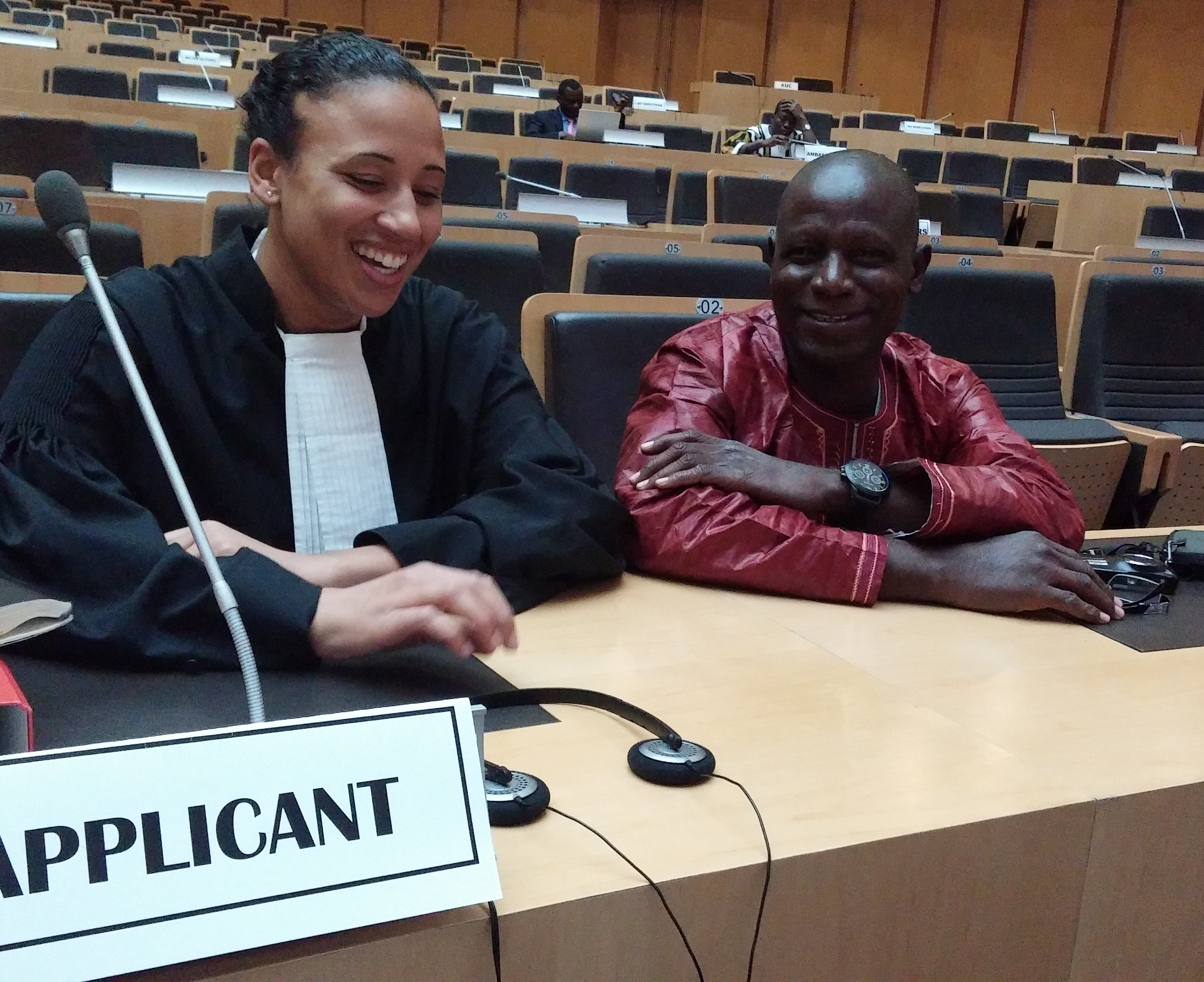 I was delighted to recently sit down (digitally speaking) with Nani Jansen Reventlow, former Legal Director of the Media Legal Defence Initiative (MLDI) and lead counsel on the Lohé Issa Konaté v. Burkina Faso case, to discuss the Konaté case, the experience of bringing the case before the Court, and the future of the Court.
I was delighted to recently sit down (digitally speaking) with Nani Jansen Reventlow, former Legal Director of the Media Legal Defence Initiative (MLDI) and lead counsel on the Lohé Issa Konaté v. Burkina Faso case, to discuss the Konaté case, the experience of bringing the case before the Court, and the future of the Court.
Nani represented Burkinabe journalist Lohé Issa Konaté throughout his case alongside the much-missed John Jones QC of Doughty Street Chambers, and Steven Finizio of Wilmer Hale, which resulted in the Court finding Burkina Faso had violated Article 9 of the African Charter, Article 19 of the ICCPR and Article 66(2)(c) of the ECOWAS Treaty, all concerning the right to freedom of expression. In June 2016 the Court awarded Konaté reparations of around $70,000, only the second reparations award by the Court, and the biggest so far for any one individual.
Oliver Windridge (OW): Let’s start with the Konaté case, how did you become involved?
Nani Jansen Reventlow (NJR): MLDI supported the appeal of Mr Konaté in Burkina Faso. After we learned of his initial conviction, we contacted Mohamed Keita who was then the Committee to Protect Journalists representative for Africa and he helped us get in touch with Konaté’s lawyers. We offered them our support and were in close contact throughout the national proceedings. When these proceedings unfortunately ended in the Burkina Faso Court of Appeal upholding the judgment of the lower Court, I suggested to Mr Konaté’s lawyer that we take the matter to either the ECOWAS Community Court of Justice or the African Court. He did not think this was a viable strategy, so I found a way to liaise with Mr Konaté directly. With the kind assistance of a senior journalist who visited Mr Konaté in prison, we obtained authorisation to file an application at the African Court.
OW: Did you get a sense of why Mr Konaté’s lawyer felt that taking the matter further was not a viable strategy?
NJR: It is difficult to say, as he did not elaborate very much on as to why he thought so, but I understood his comments as indicating that he did not expect that these international courts would be able to do much for Mr Konaté.
OW: What were the particular challenges on this case?
NJR: In preparing the application, we had the difficulty of not knowing exactly what the reasoning of the Burkinabe courts was in convicting Mr Konaté, nor was it clear what the exact legal basis of his sentencing was. As is customary in many jurisdictions, he had only been provided with a summary of the judgment. However, this failed to mention exactly which provisions of the Burkinabe press law he had been convicted under. So we had to take an educated guess and further refine our pleadings once we had received full copies of the judgments along with the government’s response to our application.
A procedural challenge was that the court of cassation had not been seized in the domestic proceedings. It was quite a long period of suspense when the judgment was read out until the Court finally said that this domestic remedy indeed need not have been exhausted!
A challenge in the broader sense was that not everyone was fully on board with us having brought the case. Looking at the way the judgment is being referred to now in free speech circles this is hard to believe, but there was quite a bit of resistance by some who were afraid of the risk of setting a bad precedent with this case. We always believed we were on sufficiently strong footing and had faith in the Court coming to the right decision. Looking at how the Court ended up nearly split, with a 4-6 dissent, on the question if criminal defamation as such violated the right to free speech, one cannot help but wonder what could have happened had some of the sceptics thrown their full weight behind the case as well.

OW: Looking back now, what highlights can you share?
NJR: Regarding the case, the main, continuing highlight for me was to see how happy my client was to get his case heard at the Court, to be part of the process and to see justice being done. Mr Konaté resumed publishing not long after he was released, has been able to increase the number of editions he publishes and even started a website. It is fantastic to see a journalist resume their work having been through a stressful legal battle and even time in prison.
As a feminist, a highlight at the hearing was the representation on all sides of the bar: lead counsel for the applicant and the respondent state were both women, as was the President of the Court at the time. We should be seeing this far, far more often.
OW: The judgement on the merits seems to make a subtle finding not necessarily picked up by all reports on the case; that the sentence imposed for the crime of defamation was unduly harsh, but the Court seemed to steer clear of stating that defamation as a crime per se is in violation of the African Charter and other international human rights instruments. Do you see this distinction too and if so, is there further litigation to come on challenging the criminal status of defamation in Africa?
NJR: The Court indeed aligned itself with the other international courts on this point, but, as I mentioned just now, there was an important dissent that essentially said that criminal defamation was not needed at all. The majority judgment said that it should be used only for extreme cases, such as incitement to violence and hate speech. The dissent argued – and I agree with them wholeheartedly – that you can criminalise that type of behaviour with specific legislation; you don’t need criminal defamation to proscribe it. I do hope the Court will get a chance to revisit this.
OW: Have you managed to ascertain how Burkina Faso has approached the judgement on the merits? Has Burkina Faso complied with its obligations?
NJR: Burkina Faso removed imprisonment as a penalty for defamation from its laws. It also lowered some of the monetary fines it had on the books. I must say I was quite impressed with the expedient manner in which they dealt with the matter, especially amidst the electoral turmoil going on in the country at the time.
OW: Turning to the reparations judgement, it appears that the Court declined to hold a public hearing at the reparations stage which it has always done up until now. Did you receive any indication as to why this happened, and do you think this affected the case in any way?
NJR: We were not informed of the Court’s reasons not to call a hearing. It is hard to say if it affected the case. As a litigator, you always prefer having a chance to engage with the Court more directly, address any questions the judges may turn out to have. But I suppose there are plenty of arguments that can be made against taking up the Court’s time in doing so.

OW: The reparations award of around $70,000 is the Court’s biggest reparations order so far for one individual. Did the Court in your opinion elaborate sufficiently on how they decided upon their reparations awards?
NJR: Yes and no. If you look at considerations on reparations from the European and Inter-American Courts, you won’t find a great level of detail there. The European Court often spends no more than a paragraph or two on reparations and you need a magnifying glass to find anything resembling understandable reasoning in there. I think they are very attached to the secrecy of deliberations of the Court, and perhaps rightfully so. Looking at it from that point of view, the reparations judgment was fairly detailed, even if some quite big leaps were taken here and there, which I believe your colleague Tétévi Davi also pointed to, along with a couple of other very good points, when he wrote a post about the judgment.
OW: Widening the focus from Burkina Faso itself, what impact do you think, or have you seen already, the Konaté case having outside Burkina Faso, across Africa and even further afield?
NJR: The judgment is being used in a number of constitutional challenges of criminal defamation throughout the continent, and I recently learned that someone in Angola was acquitted of criminal defamation under reference to the Konaté decision. The case has been used in a constitutional challenge to criminal defamation in India and an interesting case is pending at the East African Court of Justice that partly builds on the Konaté case, challenging the criminal defamation laws in Uganda. It will be interesting to see what that court decides, hopefully in the next few months.
OW: Having brought cases before other regional human rights courts in Europe and Africa how do you assess the process and your experience with the Court?
NJR: Positively. We filed the application in June 2013 and had judgment in December 2014. That is fantastically expedient. I hope the Court can keep up this efficiency as its caseload increases.
OW: As a practitioner before the Court what improvements would you like to see at the Court?
One point of concern for me is how the Court will manage the increasing stream of cases with its current operational model. It might be worthwhile considering having the Court sit in smaller chambers rather than in full quorum and perhaps at some point it can consider doing away with the concept of sitting in quarterly sessions and be in continuous operation. I understand that there are budgetary concerns to be considered, but I do think it would help continue building the Court as a robust human rights body. Finally, if I had my say, it would be great to see greater transparency in the selection of judges. International courts generally are not very good at that and it would be refreshing to see the youngest regional human rights court set a good example there.
OW: Finally, what’s next for you?
NJR: I am taking up a one-year fellowship at Harvard’s Berkman Klein Center, where I will be working on a project on better multidisciplinary cooperation in challenging barriers to free speech online. Alongside that, I will continue practising as a human rights lawyer. I particularly look forward to doing more work at the African regional courts together with Leigh Day, with whom I started a partnership on this, as well as the international and media team at Doughty Street Chambers, where I recently became an Associate Tenant.
